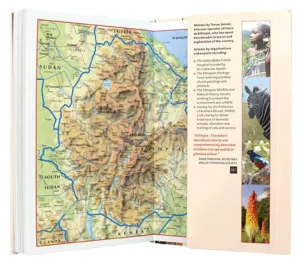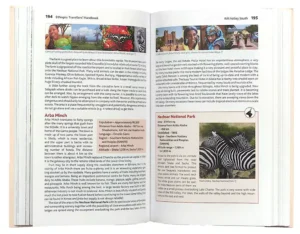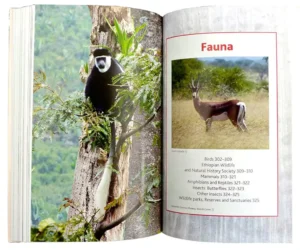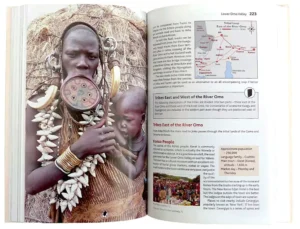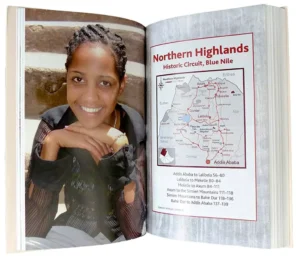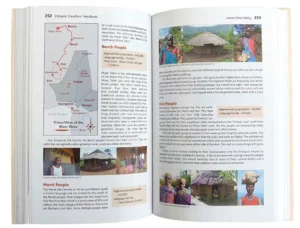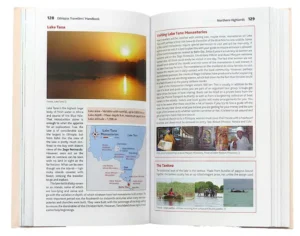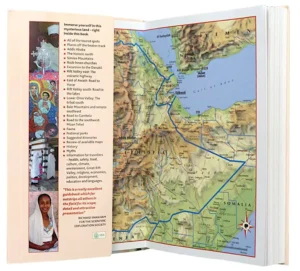Ethiopia Travellers' Handbook
Jacek Obloj – Globetrotters Club Member


In my experience I found that ‘Travellers Handbook’ helped me through most of the confusing situations while travelling due its extensive, up to date and in-depth information on history, people, myths, the political situation, topography, religion, language and all the practicalities you need to know before you go and when you get there. It even has a whole chapter on fauna!

Ethiopia Travellers’ Handbook is a travel guide conceived for the discerning traveller, the group and package tourist, and those people wishing to have a quick reference guide with a range of facts at their fingertips.
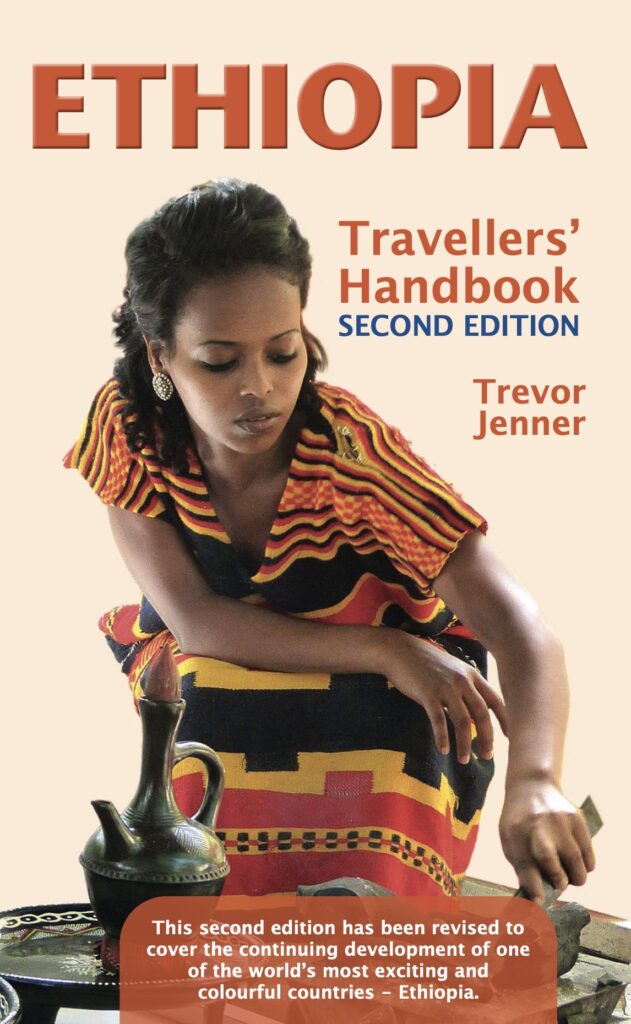
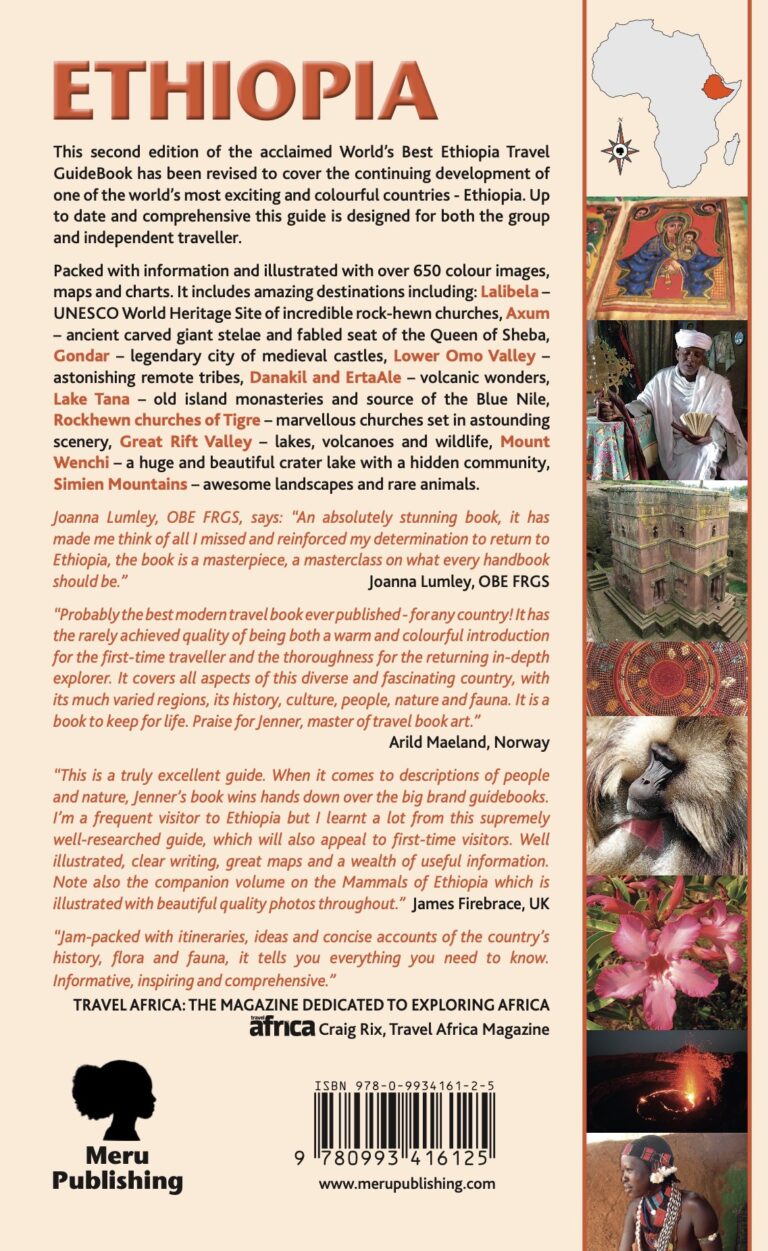
The travel guide has been designed to be uncomplicated and straightforward to use, without having to constantly refer to abbreviations and symbols with a user-friendly presentation that allows quick reference to topics of interest. The many map illustrations have been designed to be straightforward, clear and easy to follow. The book is packed with information and colour images used as illustrations.
As well as people, places and fauna, the book covers many aspects of Ethiopia including myths, history, development, political history, topography, Ethiopian Orthodox Church, language and reference data.
In full colour the book provides a clear understanding of what there is to see and do in Ethiopia.
Colonel John Blashford-Snell OBE, one of the greatest travellers and explorers of our time, has written the foreword. Other prominent organisations and people have contributed articles illustrating their exciting and heart-warming involvement with Ethiopia that are intended to further inform the traveller.
The book contains completely independent travel advice and is advertisement free.
The author is English and has had a multi-faceted career that has entailed a host of travelling throughout the globe. He setup and ran a tour company operating specialist tours to Africa and India. In over two decades of travel to Ethiopia he has travelled to all points of the compass – from the historical north to the tribal south, from the dry deserts of the east to the humid forests of the west, from the depths of the Afar Depression to the heights of the Simien Mountains. He has covered them all – many times. Trevor still visits Ethiopia regularly and leads the occasional specialist tour. He loves Ethiopia and its people, his infectious enthusiasm and knowledge is plain to see.
Travel Africa


The world’s only magazine dedicated to exploring Africa says “Ethiopia Travellers’ Handbook is informative, inspiring and comprehensive.”

User Friendly Design

Provides a clear understanding of what there is to see and do, plus much more.
The body of the book consists of two parts. These are
– People, Places and Fauna
– Reference and background information
Everything starts from Addis Ababa, which is more or less at the centre of Ethiopia. To go anywhere you go to the compass points from Addis. Descriptions of the places to see are largely based upon the roads through sectors or to compass points.
Each sector deals with a route and places of interest
- Introduction page with map of the route and contents
- Distance chart
- Images to illustrate subjects
- Illustrations (maps) of sites of interest
- Quick reference panels of topic statistics
- Information panels describing interesting events and subjects associated with the text
- Panels containing personal experiences alongside of a topic in the main text
- Information panels for birds previously seen en-route and at various destinations
Places To See

Lalibela
A UNESCO World Heritage Site of the most astonishing rock-hewn churches in Ethiopia. Lalibela is a mountain hideaway surrounded by peaks as high as 4,000 m that has hidden its unique churches from the world for centuries and was the capital of Ethiopia from the tenth century.
Read more in section Northern Highlands: Historic Circuit, Blue Nile p63.

Simien Mountains National Park
Take the road over the high plateau to see spectacular vistas of great buttresses and sheer cliffs that will take your breath away. Sit on a prominent rock and stare in wonderment at the incredible scene. Look over the escarpment to view awesome chasms and when satisfied with the giddying views turn around and look at the Geladas among the Giant Lobelias.
Read more in section Northern Highlands: Historic Circuit, Blue Nile p113.

Mount Wenchi: Crater Lake
The most beautiful crater lake in Ethiopia if not the world, Mount Wenchi hides a community of thousands of people at an altitude above 3,000m. The crater holds a huge lake, farmland, waterfalls, hot springs, forests, valleys and islands. There are boats to the islands, horse riding and walks to enjoy in this unique environment. See ‘Road to Gambela: Including Mount Wenchi and Menagesha-Suba State Forest’.
Read more in section Road to Gambela: Including Mount Wenchi and Menagesha-Suba State Forest p290.
Things To Do
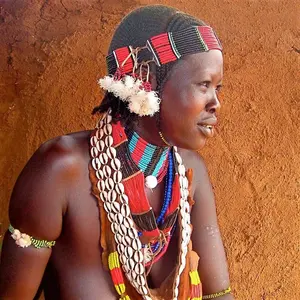
Visit the Tribes of the Lower Omo Valley
A concentration of the greatest ethnic diversity on earth, the Lower Omo Valley is home to more than a score of different tribes including the colourful Hamer, the painted Karo and the Mursi famous for their lip-plate culture.
Read more in section Lower Omo Valley: The Tribal South p216.

Dip in the Sodere Hot Springs
Dip in the Sodere hot springs and swim in the Sodere hot swimming pools.
Read more in section Rift Valley East: The Volcanic Highway p151.

Coffee Ceremony
Take Part in the Ethiopian Coffee Ceremony. Enjoy fine coffee in unique traditional style.
Read more in section About Ethiopia p369.
Flora and Fauna
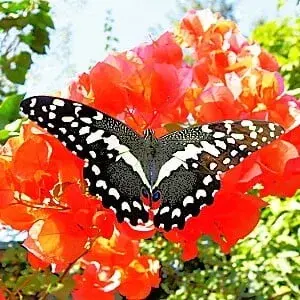
Butterflies
Butterflies are literally everywhere in Ethiopia but appear in millions in the western moist forests.
‘They were like snow drifting in clouds over the forest streams and roads with thousands taking the salts from the road surfaces.’
Insects: Butterflies p322-323.
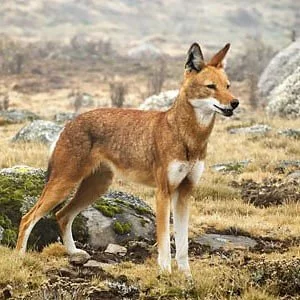
Nature Reserves
Nature reserves, national parks and wildlife sanctuaries all provide plenty of opportunities to see wildlife, including striking zebras – Plain’s p195-196, p311, p318 and Grevy’s p158, p314-315 or the rarest wolf in the world – the beautiful red Ethiopian Wolf p14, p60, p116, p264, p271, p312, p313.
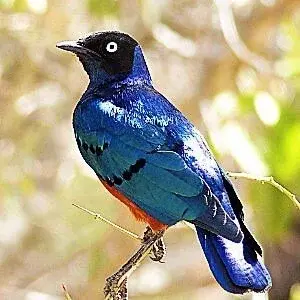
Birds
Ethiopia is home to a huge number of birds of which many are spectacular and colourful. The traveller cannot help but be spellbound by the sight of many of these dazzling creatures.
Birds p302-309.

